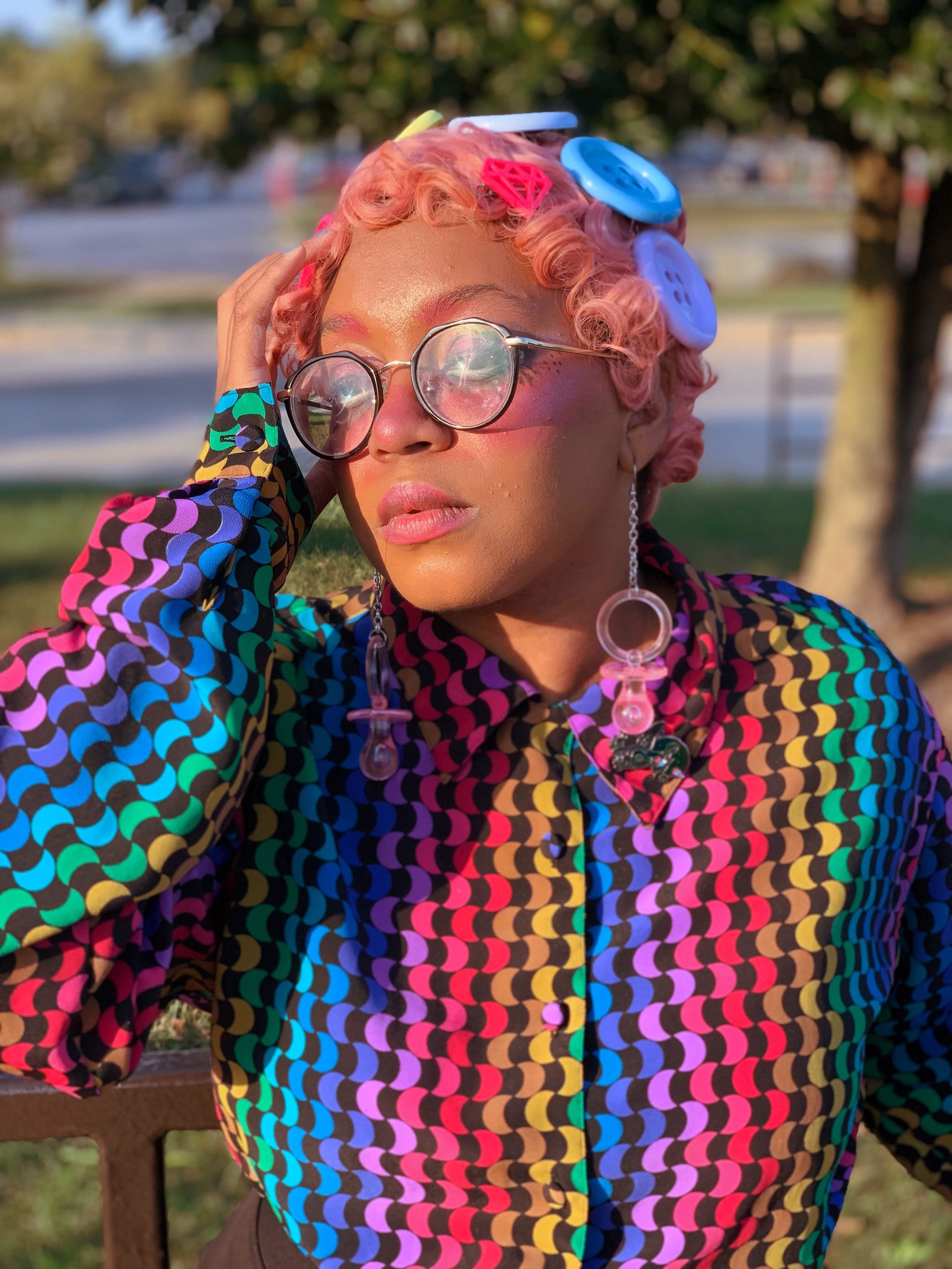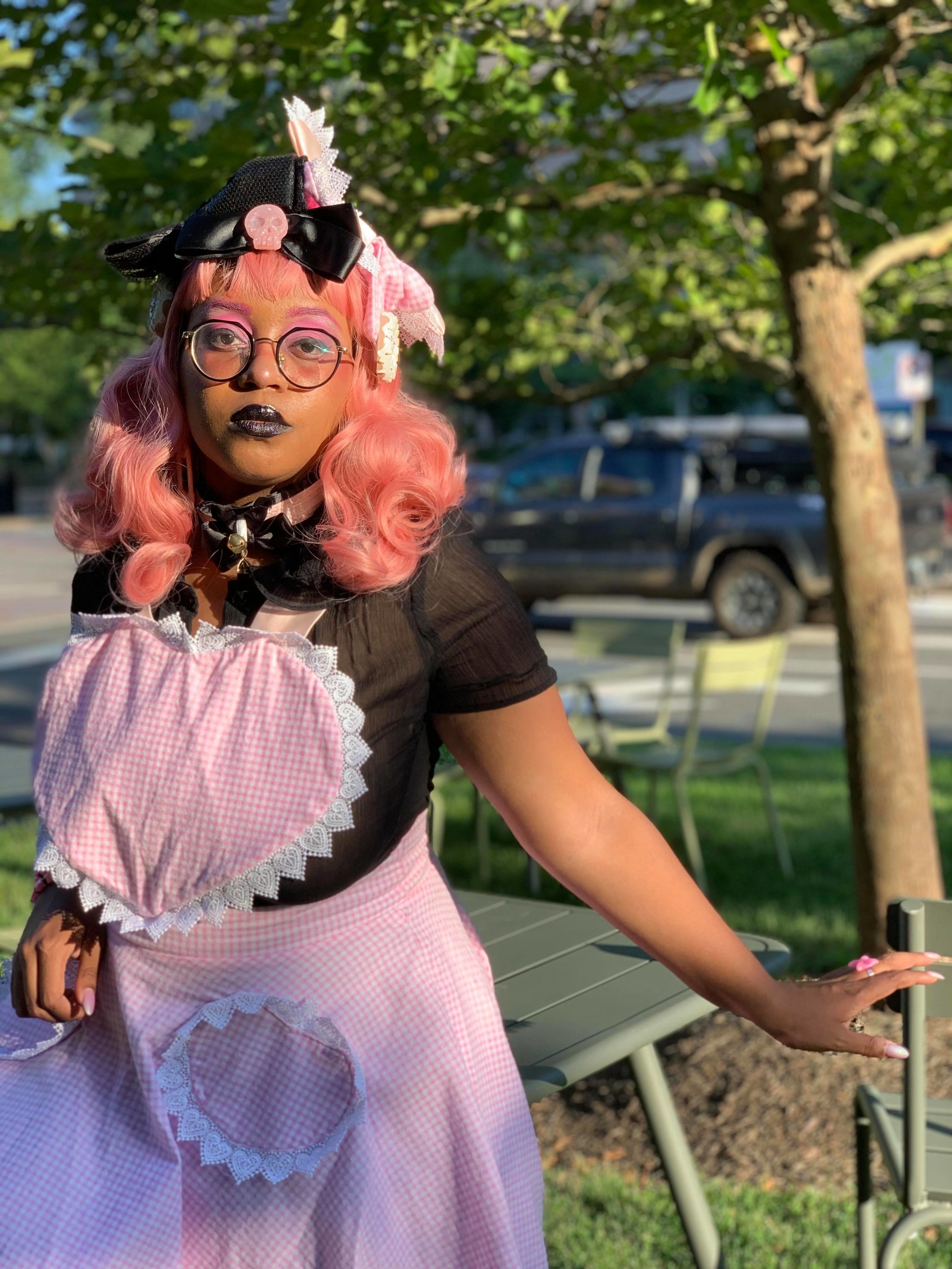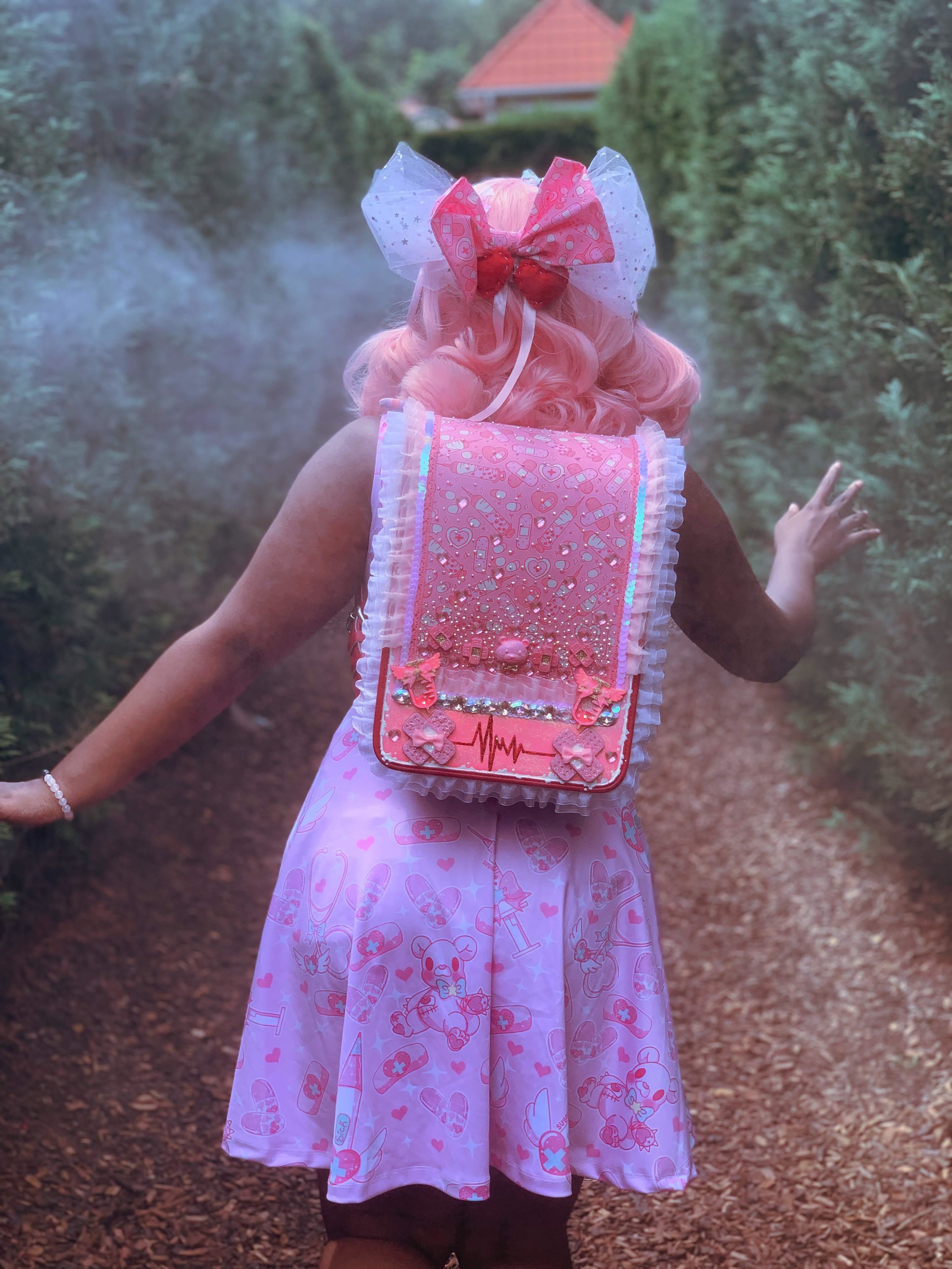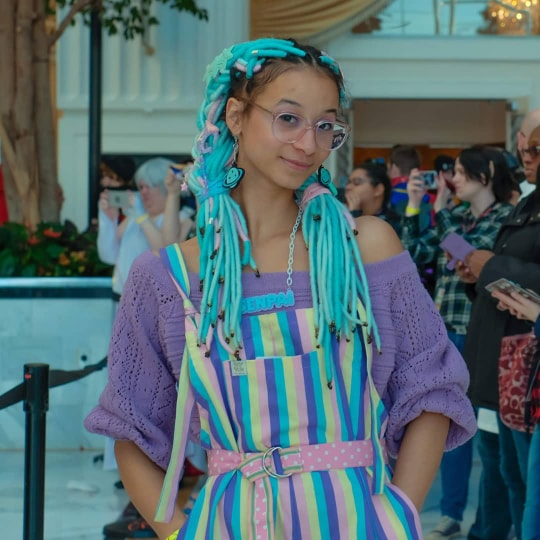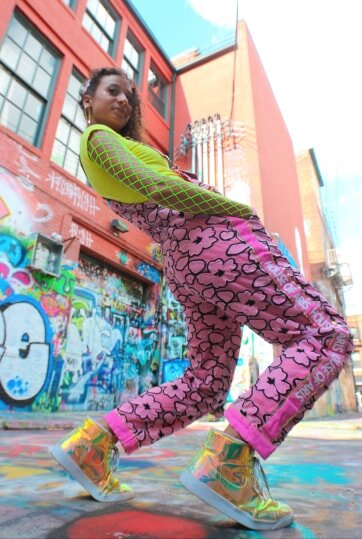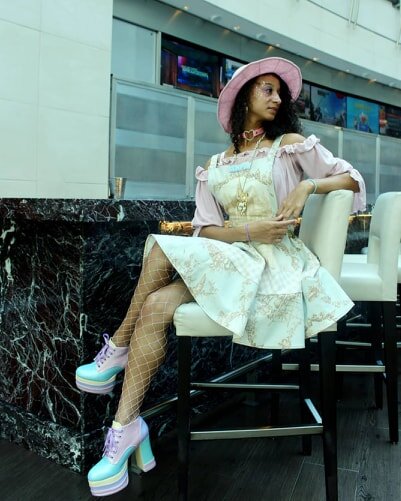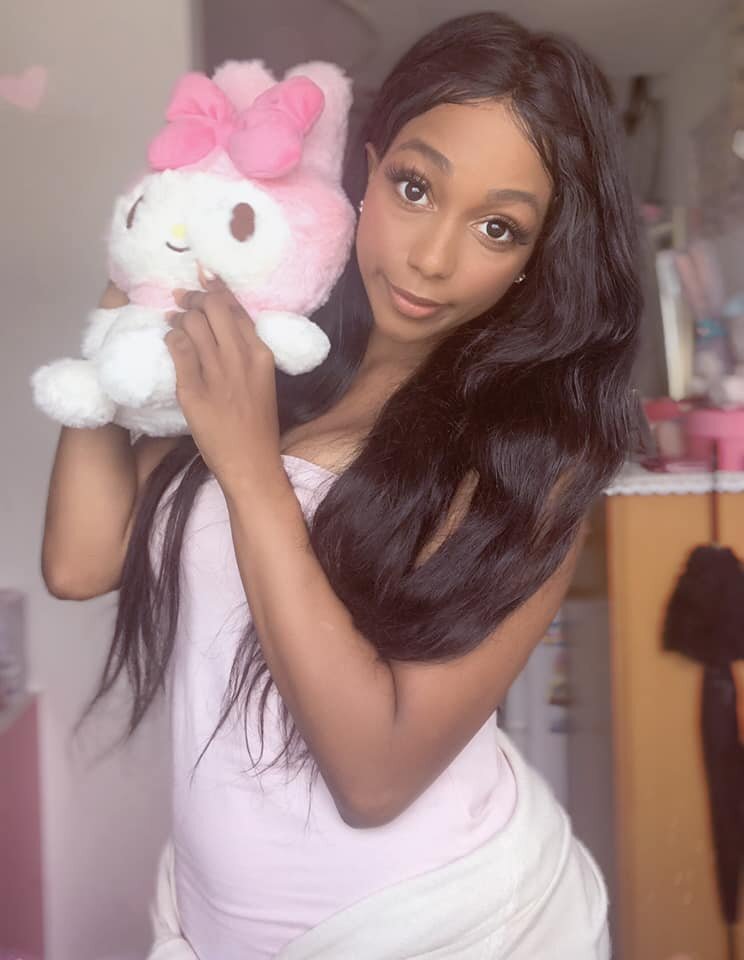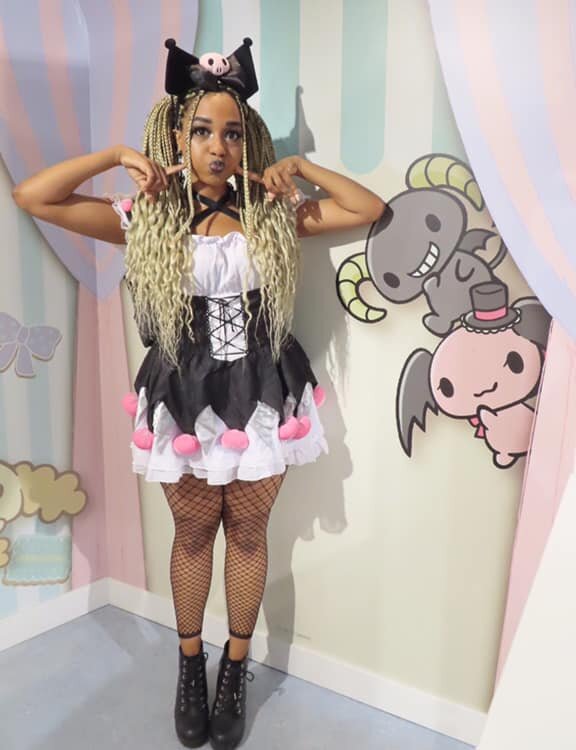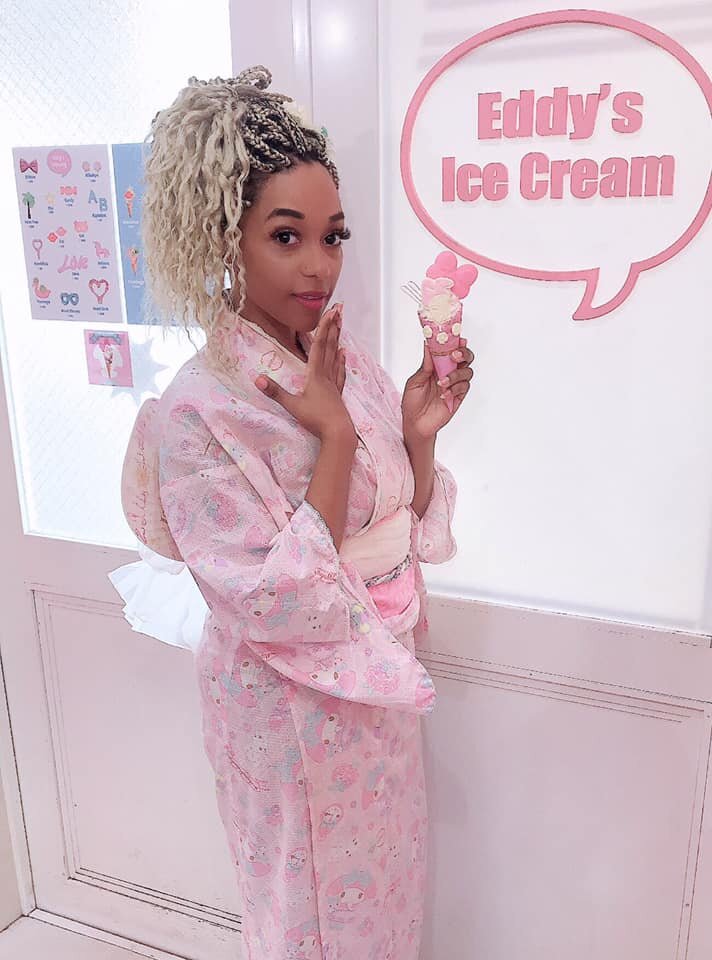Black Queens in Harajuku Fashion
Most Americans have probably only heard the world Harajuku only once or twice. The first time may have even been back in 2004 when Gwen Stefani screamed “Harajuku girls!” at the top of her lungs as she lead a punky-pop genre, performing with Japanese girls behind her wearing cute costumes. The aesthetic behind those costumes are a perfect example of what is known as “Kawaii”, which precisely translates to “cute” in Japanese.
Flash forward to nowadays, Harajuku fashion has changed, and being “Kawaii” is now the thing. It has been divided into many subcultures, and many of them are popular in Japan as well as all over the world. Many styles like Lolita, Decora, and Fairy Kei have been getting some more attention recently.
Searching these styles on Google, however, will exclusively result in photos of Japanese and White women. Black women are nowhere to be found. Since I myself dress in these styles, I find it disappointing as a black woman to not see myself represented in these photos. It’s as if it implies that it’s only acceptable when white women try these styles, but not black women. As this is totally untrue, I had to look up other black women who liked Harajuku fashion too so that I could see that I am not alone. It only took seconds to find thousands of them. Many communities can be found easily on Facebook where these women express their love for certain styles and find comfort in their own skin when wearing them.
These women are passionate about these styles. I had the pleasure of interviewing the following three women to ask them about the Harajuku styles they express themselves through.
3 Black Harajuku Queens
Name: Jade Stevenson
Age: 25
Location: Maryland
Styles: Kawaii Kei, Dekora, Yamikawaii, Storyteller Kei.
IG: @jadedisland
“I was first interested in Japanese fashion in middle school when I noticed it in some anime. I didn’t start actively wearing J-Fashion until September of 2018. I met the local community ‘DC Kawaii Style’ and felt confidence to wear what I always wanted to wear.”
Jade has no problems when it comes to wearing these styles. Emotionally, she finds it freeing. Over the Top (OTT) is her favorite style as she says it makes her feel more confident—something that is really important when it comes to wearing these styles.
“I can say that often how people receive or perceive my style can wear me down. It can be harmful to see people point and stare. Overcoming that has been a challenge.”
In my opinion, what mostly causes this staring issue is America’s perception of women. In America, adult women are not supposed to dress in unique, creative ways because they are supposed to present themselves as mature and sexy. In Japan, women are looked at as cute and innocent which is why such “Kawaii” styles are acceptable there. But here, confidence is a must since dressing this way in America will often result in head-turns or harsh comments.
For Jade, being black as a fashion micro-influencer has been a struggle in regard to growing a social media following. She believes that people with less melanin easily gain followers, which is heartbreaking since black women aren’t getting the same support.
Name: Emily Rodgers
Age: 28
Location: Baltimore
Style: Harajuku street styles
Emily found Japanese fashion after being exposed to Shoujo manga in the early ‘90s.
“I've always loved Japanese fashion because of the freedom it represented. People could wear whatever they wanted. They were free to experiment however they wanted. Seeing people create looks that were wholly unique to them was always super inspiring.”
She only started wearing J-fashion 2 years ago since she was afraid of mismatching colors and looking childish.
“The majority of the people I saw wearing J-fashion were primarily young white conventionally attractive girls. I only started experimenting with J-fashion because I started making POC friends in the J-fashion community. Seeing that same freedom and creativity represented on other people that looked like me finally gave me the courage to try it myself.”
This is one of the biggest reasons why J-fashion has grown in popularity among black women. It’s difficult to do something when you don’t see people like you doing the same thing. Sometimes it feels wrong and emotionally challenging when you can’t find your community. Once you do, though, it’s kind of a relief, and you know that you belong somewhere.
“I think this is slowly getting better and better, especially as POC representation in cosplay and nerd fandom overall has gotten better too. We have more supportive communities that we can lean on. Black groups are now making their presence. Meet ups are showing up all around the US and especially at events like Comic Con.”
Emily has definitely shown what growth can look like emotionally. She has moments when she asks herself, “is this too much?” or “do I look stupid?” But she still does what she wants. People with these kinds of mindsets are what makes fashion fun. She’s happy that she can be in this community as a black woman.
“We have a lot to offer the J-Fashion community.”
Name: Ebony
Age: 31
Location: Tokyo
Style: Japanese Girly Fashion with Gothic elements
IG: @ebunnybee
Ebony is living in Tokyo as an English teacher. She’s been there for a couple of years and has earned the name “The Princess of Japanese Girly Fashion.”
“I was exposed to Japanese fashion during high school by a close friend. I was interested in Japanese music and was exposed to Lolita fashion from a visual Kei band called Malice Mizer. They dressed intricately in Victorian-inspired clothing and it really intrigued me. During this time, social media didn’t exist and it was quite hard to get your hands on authentic Japanese fashion.
“Many people assume that black women aren’t in touch with their feminine side. People from home (US) and in Japan felt this way. It was difficult at first but I eventually stopped worrying about what other people thought of me and instead focused on being myself and wearing what made me happy.”
Ebony can be seen on social media wearing Lolita dresses with black or blonde braids. Many black women turn to wearing wigs since Lolita originated with the style of long straight hair, something many black women don’t have. Since then, the pressure to wear this specific hairstyle has changed, and more black women are wearing their natural hair or styling their hair in braids.
Although Ebony likes many styles, she finds herself representing Lolita the most since it gives her a fantasy feel. It helps her escape from the mundane nature of everyday life.
“Black women, specifically African American women, have a difficult past in the US and to this day have unique hardships. I feel that we take those negative experiences and bring positivist and originality into other parts of our lives; career, art, hobbies, etc. I believe black women who participate in Japanese fashion can put a unique and fun spin on it, taking elements of Japanese fashion while staying true to ourselves and adding our swag.”
Ebony has even been noticed in Japan for showing off her fashion sense. On a global scale, many black women look at her as a role model, myself included, for not being afraid to express who she is through her style. She inspires women like us to do the same.
All of these women are part of the movement of black women expressing their femininity through Japanese fashion. I call them the “Kawaii” black girls that people need to know about. And remember, this is only three out of thousands of girls who are fearlessly expressing themselves. I encourage you all to learn more about the Harajuku subculture through social media.
Above all, don’t be afraid to dress however you please. You only get one life, so you might as well make it a colorful one.

